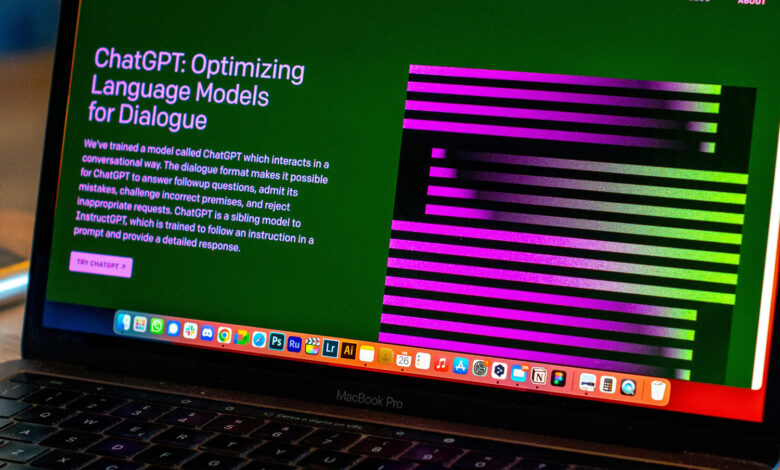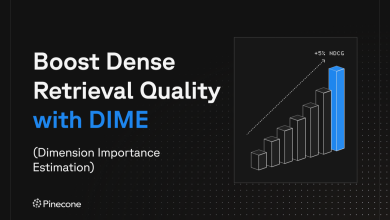
Artificial intelligence isn’t just evolving—it’s exploding. Every few months, a new model storms onto the scene, shaking up the industry and challenging the competition. The AI landscape is no longer a one-player game. The race is on, and the competitors are stronger than ever.
Le Chat, DeepSeek, OpenAI, and Copilot are the latest contenders in the ultimate battle for AI dominance. Each one is racing to build the smartest, fastest, most powerful AI yet.
It’s like the 1960s space race, but instead of landing on the moon, the goal is to transform how we work, create, and interact with technology. The best part? The real winners aren’t the companies—it’s the users.
Let’s dive into the battle and see what each AI brings to the table.
Meet the Competitors: Who’s Leading the Charge?
Not all AI models are created equal. Some focus on customization, others prioritize deep learning, and a few are engineered for sheer speed and efficiency. Here’s how the top contenders stack up.
Le Chat: Europe’s AI Challenger
Le Chat is Mistral’s latest AI assistant, built to compete with OpenAI’s ChatGPT and Anthropic’s Claude. Unlike Mistral’s open-weight models, Le Chat is a hosted AI service with access to Mistral’s most advanced models via chat.
Engineered for speed, it generates up to 1,000 words per second through its Flash Answers feature. It supports text, code, documents, and images, making it a versatile all-in-one AI tool.
With a Python-powered Code Interpreter and AFP newswire integration, Le Chat prioritizes accuracy, speed, and adaptability.
DeepSeek: The Rising Powerhouse
DeepSeek is a game-changer from China, proving that AI innovation isn’t limited to Silicon Valley.
It stands out with its Mixture-of-Experts (MoE) approach, activating only the most relevant subset of its 671 billion parameters per request for optimized performance. It excels in technical tasks, particularly mathematics, boasting a 90% accuracy rate, surpassing many competitors.
Unlike proprietary models, DeepSeek is open-source, offering greater customization and accessibility for those with technical expertise.
OpenAI: The Veteran with the Edge
OpenAI is still the heavyweight champion. With GPT-4 powering its models, OpenAI offers one of the most accurate, polished, and widely integrated AI solutions on the market.
ChatGPT is already embedded in apps, tools, and APIs worldwide, making it the default choice for many businesses. However, its subscription model and pricing are giving competitors an opening to attract budget-conscious users looking for alternatives.
Copilot: Microsoft’s Productivity Machine
Copilot isn’t here to chat—it’s here to get work done. Integrated directly into Microsoft 365, Copilot is built to supercharge productivity. It assists with writing, calculations, and automation, making everyday tasks faster and smarter.
For professionals who live in Word, Excel, and Teams, Copilot is the AI that seamlessly blends into their workflow, eliminating repetitive tasks and enhancing efficiency. It’s not a general-purpose chatbot, but when it comes to workplace automation, it’s unbeatable.
The AI Arms Race: Where the Battle Is Fiercest
These AI models aren’t just competing on branding. They’re going head-to-head in critical areas that define their real-world usefulness.
User Experience and Accessibility
A powerful AI is useless if it’s frustrating to use. OpenAI leads in polished interfaces and effortless integration, while Copilot dominates in productivity tools.
Le Chat and DeepSeek take a different approach, offering customization and multilingual capabilities. For developers and researchers, these models provide greater flexibility than closed systems.
Pricing is another battlefield. OpenAI has premium tiers, but competitors are offering free or lower-cost alternatives, making AI more accessible to a broader audience.
Intelligence and Performance
Speed, accuracy, and reasoning define AI excellence, and each competitor has its strengths. OpenAI leads in deep reasoning and code generation, making it a top choice for technical and creative tasks.
DeepSeek, leveraging its Mixture-of-Experts (MoE) architecture, excels in structured, long-form responses and technical problem-solving, particularly in mathematics. Copilot dominates in predictive analysis and workflow automation, seamlessly integrating with Microsoft Office tools.
Le Chat, with its Flash Answers feature, delivers lightning-fast responses and supports multimodal tasks, making it a versatile choice for both developers and business users.
Customization vs. Closed Systems
The AI landscape is divided between open-source and proprietary models. DeepSeek and Le Chat offer greater customization and transparency, appealing to businesses that want control over their AI.
OpenAI and Microsoft take a closed approach, focusing on reliability and integration rather than flexibility. This suits users who prefer an out-of-the-box solution over extensive customization.
Enterprise Adoption and Business Applications
Microsoft’s Copilot dominates the enterprise AI market due to its tight integration with Microsoft 365. OpenAI remains a favorite for customer service, automation, and creative tasks.
DeepSeek appeals to companies needing AI-powered data analysis, while Le Chat’s on-premises and GDPR-compliant options make it attractive to organizations with strict security requirements.
The Winner? The Users
No matter which company “wins” the AI race, users are coming out on top. Competition means better tools, faster improvements, and more innovation.
Businesses now have AI that fits their exact needs. Developers can train, modify, and optimize models like never before. Content creators, coders, and professionals have more choices than ever.
The pricing war is another win for users. OpenAI’s premium subscriptions are being challenged by free or lower-cost alternatives, meaning AI is becoming more accessible. As companies battle for market share, expect better free versions, smarter features, and more competitive pricing.
AI isn’t just a luxury tool anymore—it’s becoming a daily necessity. Whether it’s writing, coding, designing, or automating tasks, AI is becoming more intuitive, efficient, and built for real-world use.
This is just the beginning. The biggest breakthroughs are still ahead, and every company in this space is racing to be first.
The AI Race Has Only Just Begun
Artificial intelligence isn’t slowing down—it’s accelerating at full speed. The battle between Le Chat, DeepSeek, OpenAI, and Copilot is shaping the future of how we interact with technology.
Unlike the original space race, there won’t be a single winner. Instead, the landscape is shifting toward specialized AI models, each excelling in different areas.
Microsoft is turning AI into a workplace powerhouse, OpenAI is driving deep learning and automation, and Le Chat and DeepSeek are making AI more open, flexible, and customizable.
No one knows exactly where this race will lead. But one thing is certain: users will keep getting smarter, faster, and more powerful AI at their fingertips.
Strap in. This is just the beginning.




